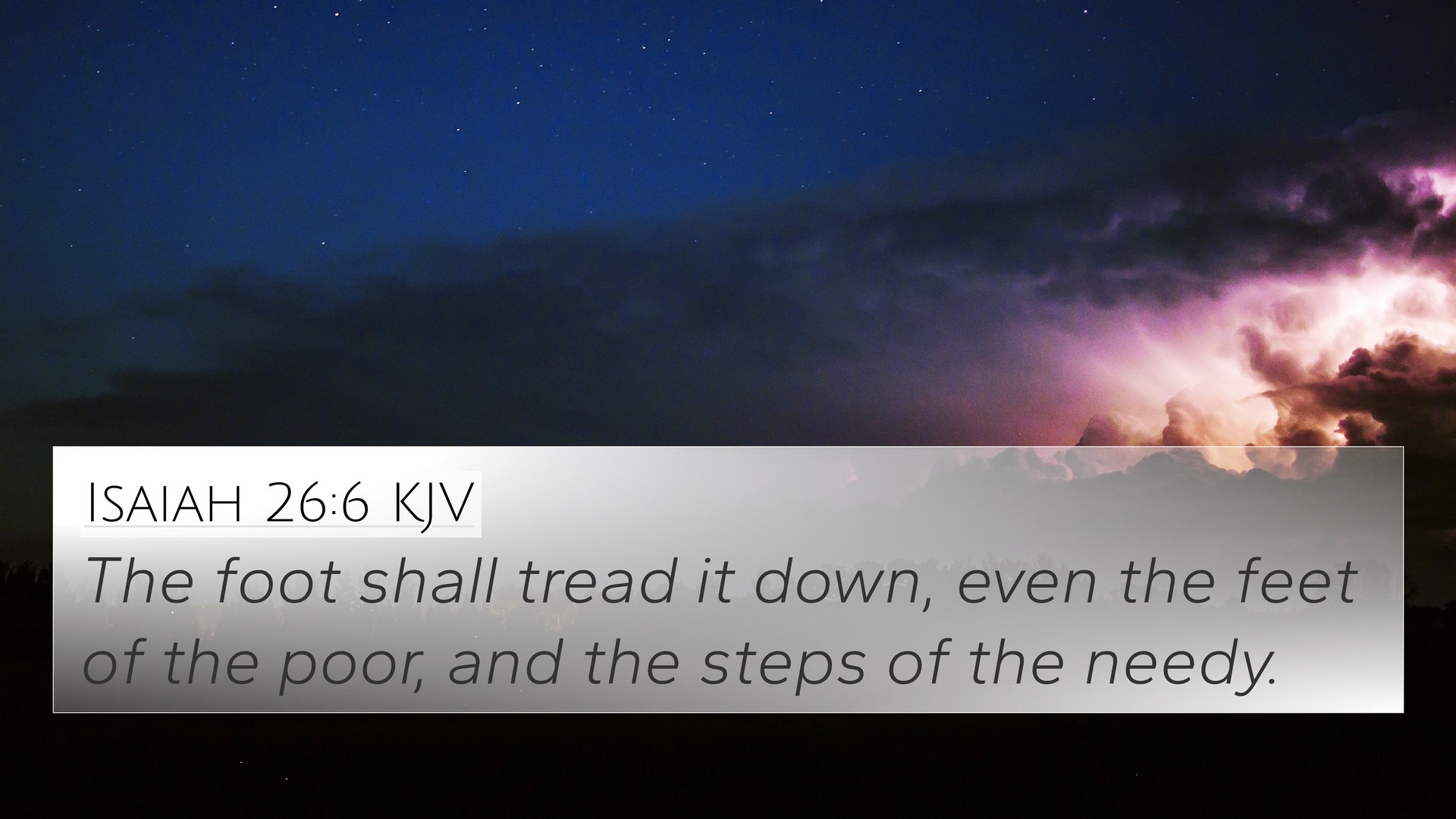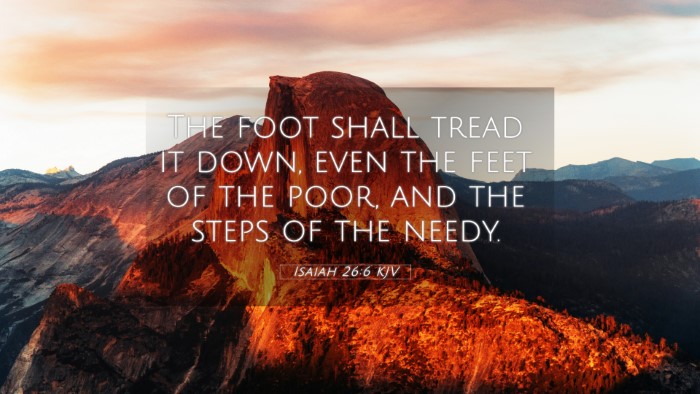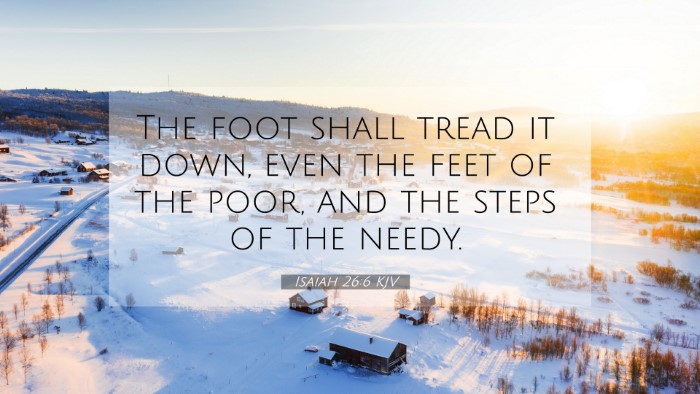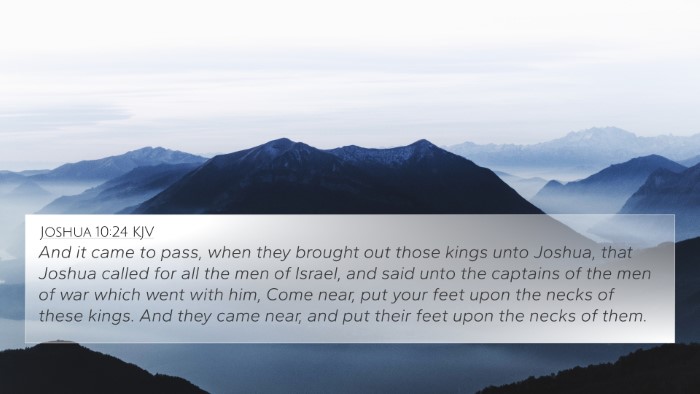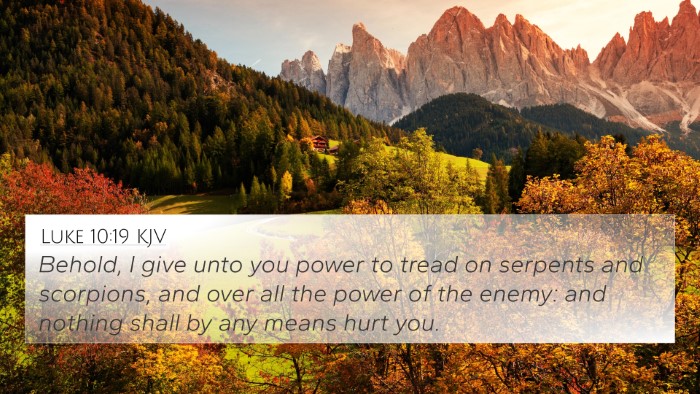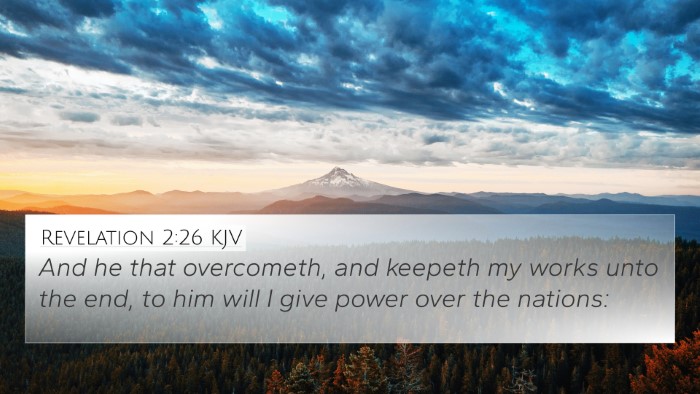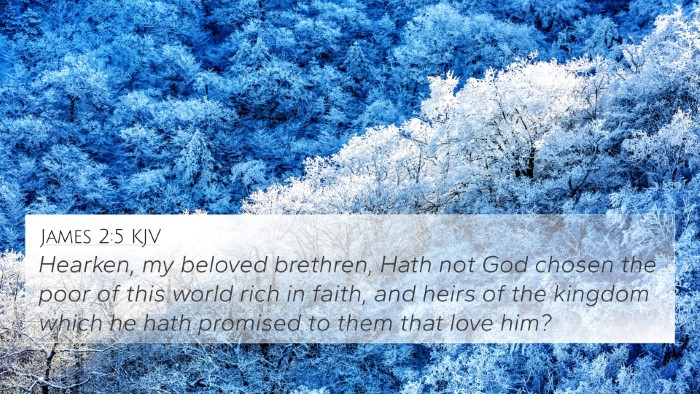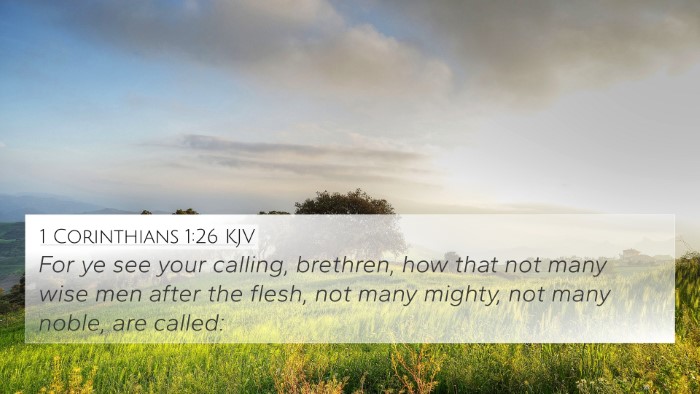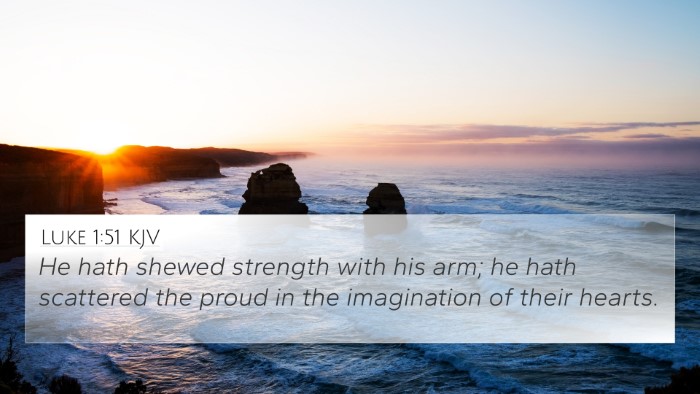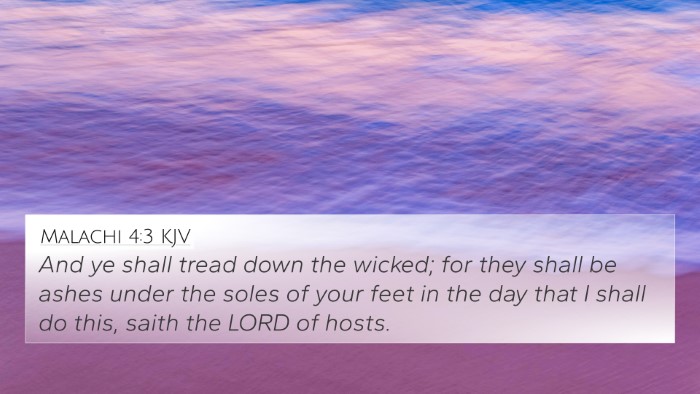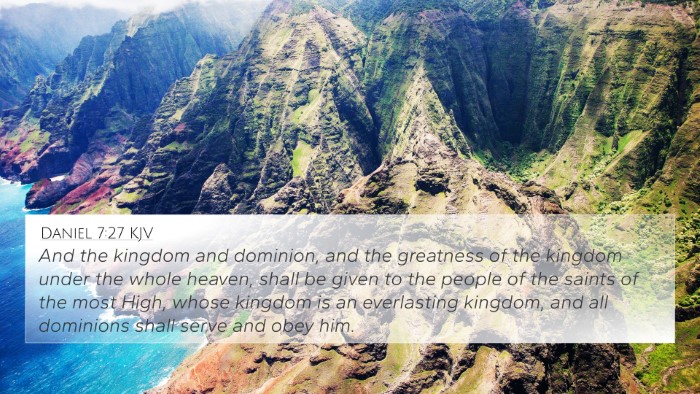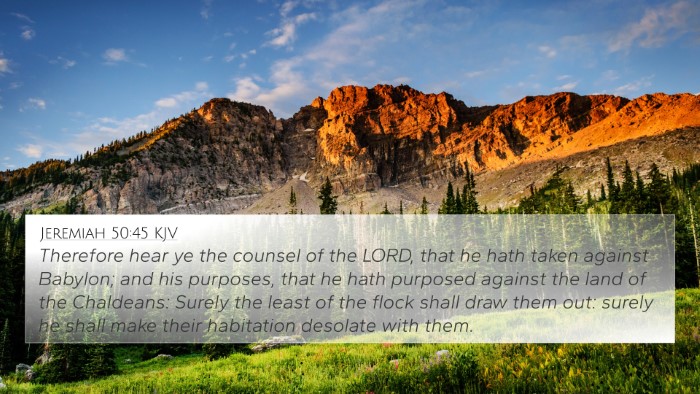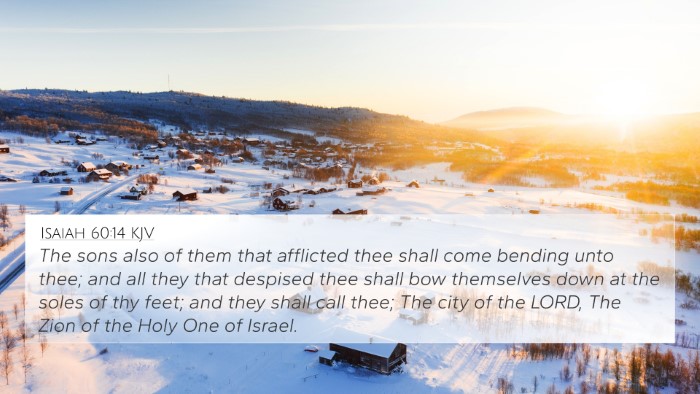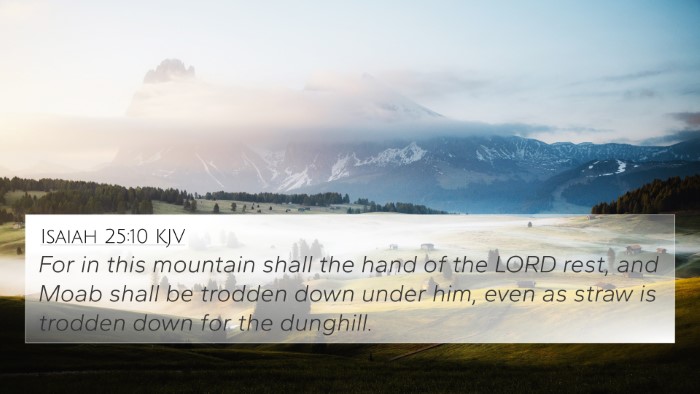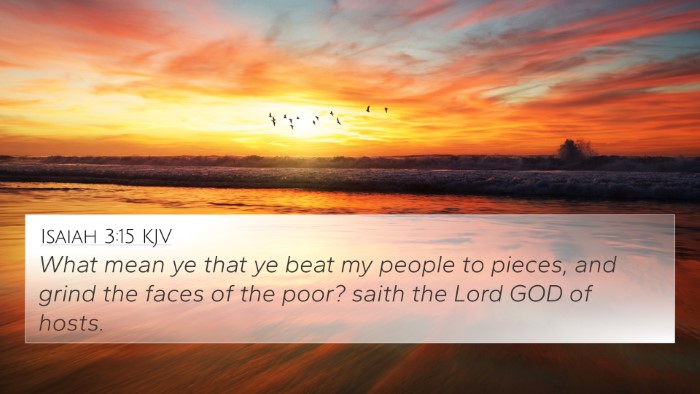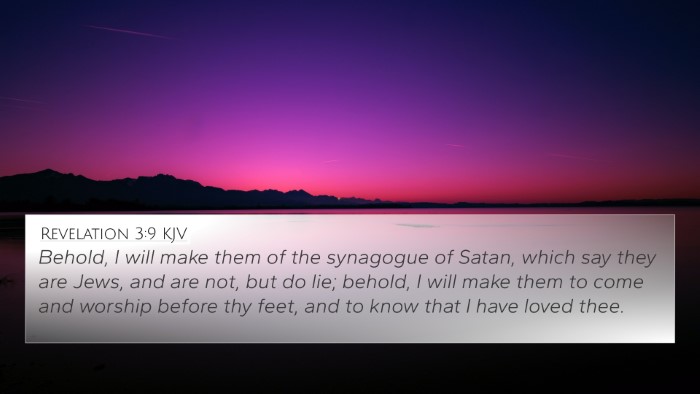Understanding Isaiah 26:6
This verse states:
"The foot shall tread it down, even the feet of the poor, and the steps of the needy."
Isaiah 26:6 is a profound verse that speaks to the themes of divine justice and the eventual triumph of the underprivileged. Below is a summarized interpretation of its meaning based on the insights of several public domain commentaries.
Contextual Analysis
The context of Isaiah 26 is a song of praise for the deliverance that comes from God. The chapter contrasts the fates of the righteous and the wicked and demonstrates how the Lord protects and exalts His people amidst adversity. Here, verse 6 serves as a powerful reminder of God’s adversarial relationship against the oppressors.
Matthew Henry's Commentary
According to Matthew Henry, this verse symbolizes the ultimate result of God’s justice: the humble and oppressed will see their triumph over those who have wronged them. The ‘feet of the poor’ indicates that even those who seem the least in society will rise to conquer the oppressor once God’s judgment passes. This aligns with many thematic Bible verse connections where the poor and needy are lifted up by divine intervention.
Albert Barnes' Commentary
Albert Barnes highlights that the imagery of 'treading down' suggests a complete subjugation of the world’s oppressors by the faithful. He emphasizes that the poor represent the true believers, who, despite their trials on earth, will ultimately partake in God’s victory. Barnes points to other biblical texts where God opposes the proud and uplifts the humble, providing links to relevant themes of divine justice throughout the Scripture.
Adam Clarke's Commentary
Adam Clarke elaborates that this passage vividly illustrates the fate of both the righteous and wicked. He notes that the 'steps of the needy' signify those who walk in the way of righteousness and dependency on God. Clarke also draws connections to prophetic visions where the oppressed are regarded by God, indicating an inter-Biblical dialogue between the Old Testament and the message in the New Testament that reinforces care for the marginalized.
Bible Cross-References
To deepen your understanding of Isaiah 26:6, consider the following Bible cross-references:
- Psalms 37:11: "But the meek shall inherit the earth; and shall delight themselves in the abundance of peace."
- Matthew 5:5: "Blessed are the meek: for they shall inherit the earth."
- Luke 6:20: "Blessed are you poor: for yours is the kingdom of God."
- James 2:5: "Listen, my beloved brethren: Has God not chosen the poor of this world to be rich in faith and heirs of the kingdom?"
- Proverbs 14:31: "He who oppresses the poor reproaches his Maker, but he who honors Him has mercy on the needy."
- Isaiah 29:19: "The humble also shall increase their joy in the Lord, and the poor among men shall rejoice in the Holy One of Israel."
- Matthew 19:30: "But many who are first will be last, and the last first."
Thematic Connections
Isaiah 26:6 emphasizes themes of:
- Divine Justice: The contrast is made between the oppressor and the oppressed, highlighting God’s role as a defender of the marginalized.
- Hope for the Needy: The reference to 'the poor' assures followers that their plight is acknowledged and will eventually lead to redemption.
- Uplifting the Humble: This theme resonates within various Bible verses, pointing to God’s consistent action toward those who are humble and reliant on His grace.
Tools for Cross-Referencing
For those wishing to delve deeper into the connections within the Scripture, various tools and Bible cross-reference systems are available:
- Bible Concordance: This helps locate Scriptures based on specific terms.
- Bible Cross-Reference Guide: A systematic approach to understanding the interconnectedness of verses.
- Comprehensive Bible Cross-Reference Materials: These materials offer insights into thematic and narrative parallels across various Scriptures.
Conclusion
Isaiah 26:6 stands as a beacon of hope, portraying God’s justice as it unfolds through the lives of the humble and needy. By leveraging cross-references and understanding the layered themes present in this verse, readers can cultivate a richer understanding of the biblical narrative that connects the oppressed to God’s overarching plan for justice and redemption.
As you study this verse and its connections, consider how other scriptures reinforce the message of divine justice and the fate of the humble. Delve into the resources available for cross-referencing to enhance your understanding and application of these truths in your spiritual journey.
